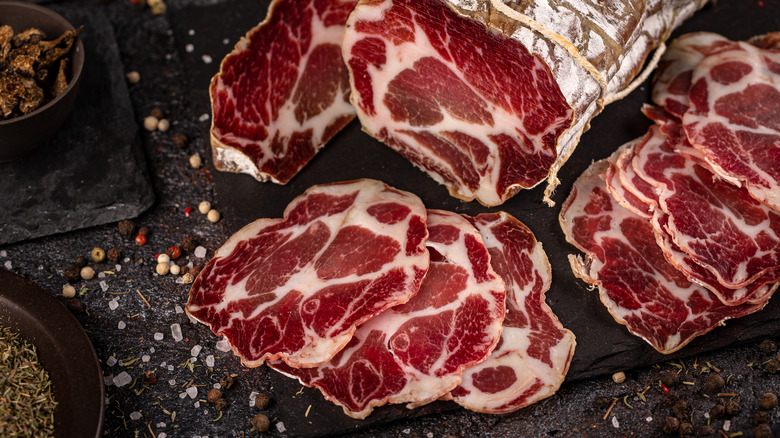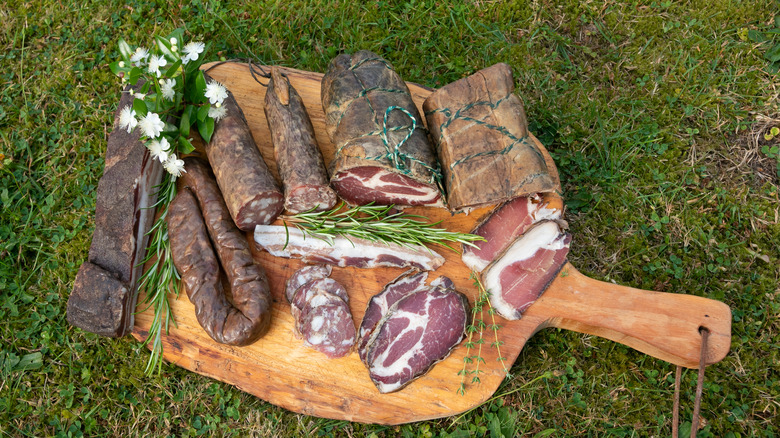Why You Should Stop Overlooking Coppa At The Butcher Shop
When you imagine butcher shops, you probably visualize a large butcher block countertop behind glass windows sporting all kinds of foods like sausages and cured meats sliced neatly in a row. A cold storage refrigerator holds hooks of hanging meat and butcher paper in every color line the back walls. Butcher shops are supposed to be clean, safe places, where community members can ask questions and purchase good-quality foods.
According to Campbells Meat, the practice of butchering animals for consumption dates back over 400,000 years ago, when ancient tools were used to efficiently strip carcasses and salvage the meat. As animals like sheep, goats, pigs, and cattle were further domesticated, butchering became a more relevant and important culinary practice. Since the Neolithic era, we've come a long way and advanced our carving techniques, our animal breeds, and our sanitation.
When arriving at the butcher store, most people have an idea of what they are coming in to purchase, whether they are following a steadfast recipe or have a specific cut of meat in mind like a steak, pork chop, or tenderloin, but one cut you should not pass up at the butcher shop is the coppa.
Rare but delectable
What is coppa? And what makes it so special? Ngo Your Meal says that the word "coppa" is derived from the Italian word "Capo" or the word "Collo," which translate to head and neck, respectively. The coppa meat is a pork collar and is both well-marbled and can be made into salumi (which is perfect for a charcuterie board) or grilled, braised, or smoked (via Bon Appétit). The coppa pairs nicely with spices and herbs such as bay leaves, nutmeg, cinnamon, and cloves, explains Ngo Your Meal.
According to US Foods, the coppa is an extension of the pork shoulder loin and is known to be juicy and flavorful, but its positive characteristics are also what makes this cut of meat difficult to obtain. You won't find the coppa floating around your generic, run-of-the-mill supermarket, and honestly, some butchers might not even have it. This is because there are only two cuts of coppa for every one pig and it is fairly expensive when compared to other pieces of meat. But due to its rich flavor and tender quality, this cut of pork should not be overlooked and is perfect for special occasions.

